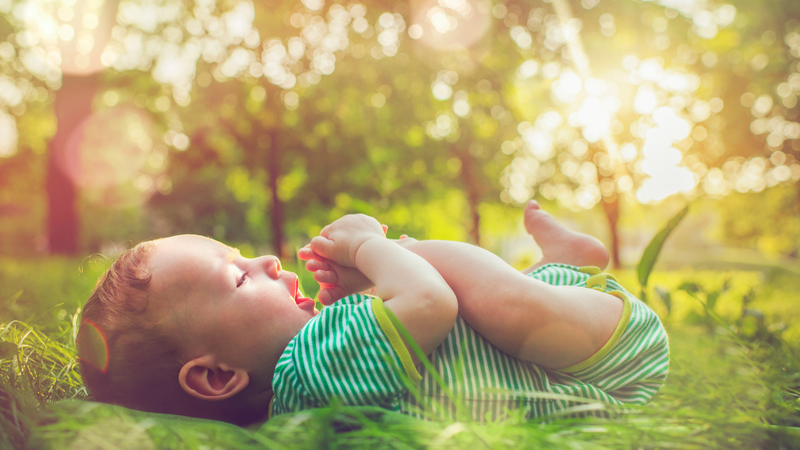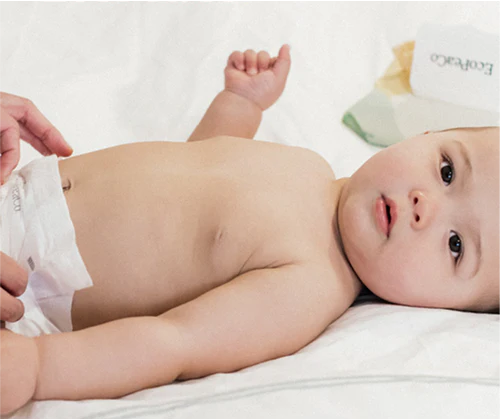As our planet provides clear signs that it needs to heal, many eco-conscious individuals are seeking ways to be kinder to the environment. A prime way to do this is to swap common household and baby products with bamboo alternatives, as the plant is incredibly sustainable, and provides a range of health benefits.
Here’s why switching to bamboo as often as possible can help you minimize your family’s carbon footprint.
- One of the fastest growing crops. Because bamboo can grow up to four-feet in one day, it’s always being replenished. Most bamboo species can mature in as short as three to six years.
- Chemical free and low maintenance. Unlike most plants, bamboo doesn’t require pesticides or herbicides, needs small amounts of water, doesn’t call for irrigation, and doesn’t have to be replanted, as it regenerates from its roots.
- Improves soil. This sustainable wunderkind improves soil by leaching heavy metals from it, and drawing water closer to the surface. It also prevents soil erosion, as its roots hold soil in place.
- Good for the air. Bamboo plants improve the atmosphere by absorbing carbon dioxide and releasing 35% more oxygen than trees of the same size.
- Minimal waste. Almost every part of the bamboo plant is able to be used, often leading to the development of products like mulch, building supplies, furniture, diapers, toys, kitchenware, textiles and so much more.
- Stronger than wood. Because bamboo fibers are more durable than wood fibers, they’re less likely to be impacted by environmental factors (e.g., rain, wind, heat, and humidity), meaning they provide an ideal substitution for wood-based building materials.
- Can grow in a variety of conditions. Because it doesn’t need much water, bamboo can grow in more arid regions, and helps promote moisture in the soil. But dry climates aren’t the only areas where bamboo thrives – this hearty plant also does well in tropical, subtropical, and temperate zones.
In addition to these major sustainable perks, bamboo offers a slew of health benefits.
- Free of toxic chemicals. This is a big plus as babies put almost everything in their mouths.
- Antibacterial. Bamboo products are a win for families, as they’re resistant to the growth of bacteria so make the perfect material to have next to baby’s skin.
- Hypoallergenic. Those with allergies are unlikely to experience adverse effects from bamboo products.
- Disposal. Being from a plant, bamboo breaks down naturally in the environment, making it a great choice for those looking to lessen their footprint. Items like bamboo toothbrushes can be disposed of in your backyard compost or city green bin.
Baby Products Made of Bamboo
If you’re wondering how to mix more bamboo into your family’s life, the following items are a good place to start.
Note: To ensure optimal benefits, confirm the products you purchase affirm they’re made with “pure, 100% bamboo.”
- Diapers and wipes. Diapers (and wipes!) made from bamboo allow them to be half degraded in just two to three months, while regular diapers can take 500 years to decompose.
- Kitchenware. Bamboo is a great choice when it comes to kitchenware, as it prevents chemicals from leaching into your child’s food – something that often happens with plastic dishes and utensils.
- Toys. When it comes to the choice of baby putting a bamboo or plastic-based toy in their mouth, bamboo is a much safer option, as many plastic toys contain carcinogens like vinyl chloride, dioxin, and phthalates.
- Oeko-Tex certified bedding, clothing, and washcloths. While all bamboo textile is not created equal, as numerous chemicals can be used in its production, bamboo products certified by Oeko-Tex are free of harmful substances.
Benefits of this type of bamboo fabric include breathability that helps baby regulate their temperature, antibacterial properties (bacteria that causes odors doesn’t like to grow on this fabric), and durability.
- Floor covering. Bamboo mats are an excellent choice for nursery floor coverings, as many area rugs and carpets contain endocrine-disrupting phthalates, toxic dyes, formaldehyde, pesticides, flame retardants, and other harmful chemicals. Most bamboo mats are free of toxins.
Bamboo is not only versatile and durable, but a great option when choosing more Earth-friendly products, and when it comes to your baby’s bottom, strength, softness and sustainability are top priority.



